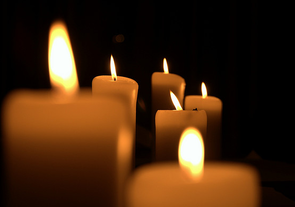
Between November 15th 2011 and November 14th 2012 265 trans people have been reported murdered around the word. Tomorrow - the 20th November - sees the 14th annual Trans Day of Remembrance.
The day of remembrance has grown from vigils for Rita Hester, who was murdered on November 28th 1998. Her murder, like that of many trans people, has never been solved. At the time of her death there was relatively little media attention, but the day of remembrance has grown with events now taking place all over the world.
You can see a list of planned events on transgenderdor.org. - there are currently 12 listed in the UK.
I'd like to quote at length here from an article by Jos originally posted on Feministing.com in 2009 and now available on The Society Pages:
| The media’s consistent failure to accurately identify trans folks reflects the erasure of and refusal to recognize our identities, lived experiences, and even our very existence. . . . This narrative erases trans identities, legitimises perceived physical sex over gender presentation, and paints trans folks as deceptive and the murderer as tricked, suggesting possible justification for murder. Media narratives end up contributing to the culture of violence and hatred targeted towards trans folks by legitimizing this “trans panic” narrative that gives the responsibility for explaining the murder victim’s identity to the very person who killed them. | I am greatly saddened when feminist groups talk about only allowing cis-gendered women to take part in their activities, marches or meetings |
I share something with everyone who was killed, but there are also major differences between my life experiences and those of most of the people we are remembering. I raise this point because I often feel a degree of appropriation in Trans Day of Remembrance. Many people are entering this day remembering lost friends and loved ones, people with whom they share life experience. But even many trans folks like myself have a very different life story from those killed. While I feel a strong personal connection to this day I also know the stories are not my own. I can mourn but also recognize important power differentials that make other trans folks more likely targets of violence. We must avoid using the stories of those killed to advance consciousness raising projects and a political agenda that is about the needs of trans folks with more relative power and privilege. Instead, we need to be continually working to build a politics that centers the voices and needs of those who are most vulnerable, even within already marginalized populations.
As a cis-gendered white woman I don't feel like I can add much to that without the risk of coming across as incredibly trite. One thing I will say is that I think it is vitally important that as feminists and activists we stand together, not just on the 20th, but every day, against violence, especially violence that is rooted in fear and hatred against trans people, and misogyny.
I am greatly saddened when feminist groups talk about only allowing cis-gendered women to take part in their activities, marches or meetings (only they never use that term, it's usually something odious like 'biological women'), and I want to make sure that the spaces I live in, work in and create are open to everyone and ask difficult questions about how our experiences of privilege shape us.
Squeamish Louise


 RSS Feed
RSS Feed
